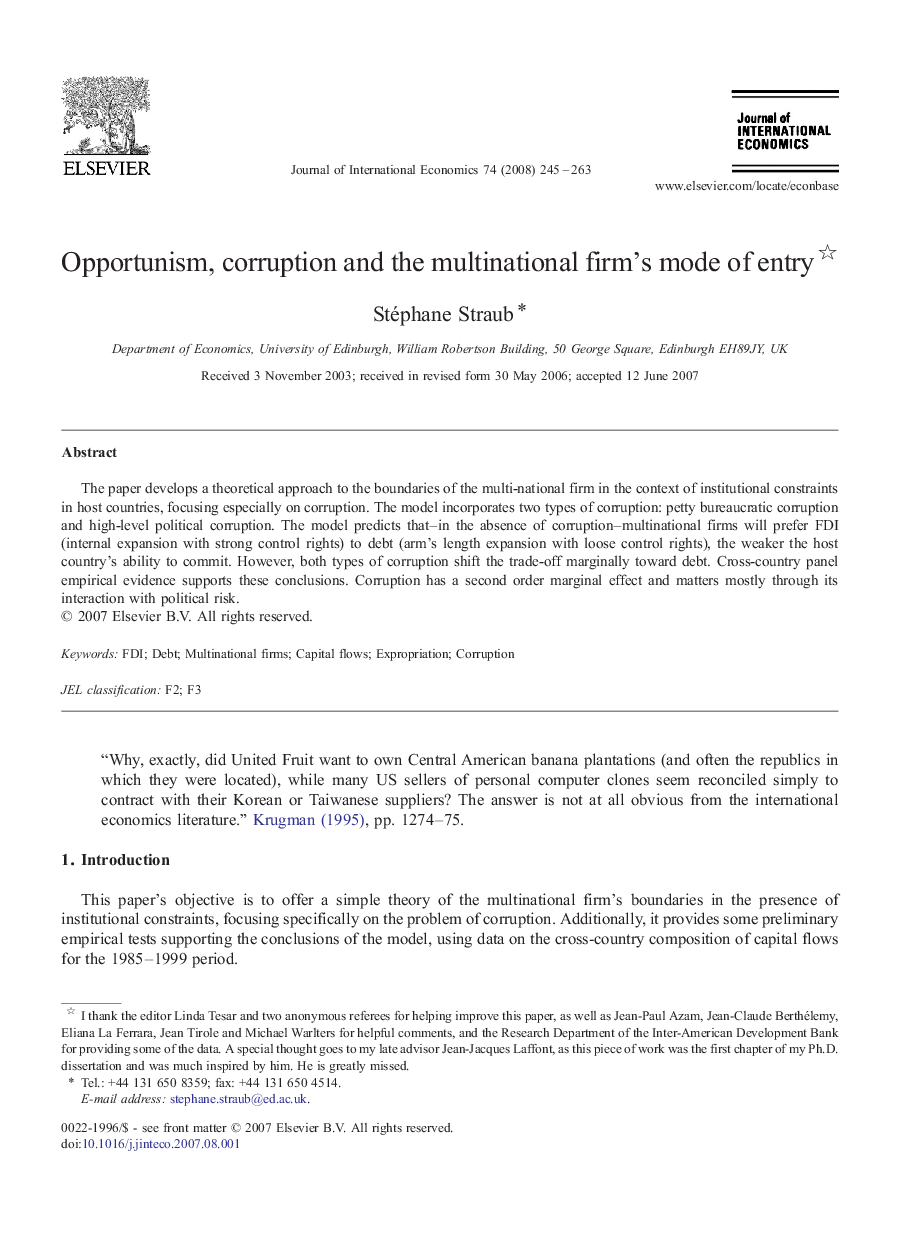| Article ID | Journal | Published Year | Pages | File Type |
|---|---|---|---|---|
| 962784 | Journal of International Economics | 2008 | 19 Pages |
Abstract
The paper develops a theoretical approach to the boundaries of the multi-national firm in the context of institutional constraints in host countries, focusing especially on corruption. The model incorporates two types of corruption: petty bureaucratic corruption and high-level political corruption. The model predicts that-in the absence of corruption-multinational firms will prefer FDI (internal expansion with strong control rights) to debt (arm's length expansion with loose control rights), the weaker the host country's ability to commit. However, both types of corruption shift the trade-off marginally toward debt. Cross-country panel empirical evidence supports these conclusions. Corruption has a second order marginal effect and matters mostly through its interaction with political risk.
Related Topics
Social Sciences and Humanities
Economics, Econometrics and Finance
Economics and Econometrics
Authors
Stéphane Straub,
